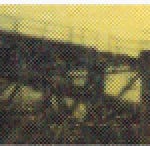In 1863 the Northern States instituted another private Bank to issue U.S. currency, the National Bank. The letter that's quoted at the start of To Prevent ... , from Rothschild Brothers of London to their investment-banking associates Iklheimer, Morton and Vandergould on New York's Wall Street, is reprinted in full below. The letter, quoted in J.R. Elson's book Lightning over the Treasury Building, slyly uses 'A Mr. John Sherman of Ohio' (a Congressman and later author of the Sherman Antitrust Act of 1890), as the mouthpiece for perceived advantages from this National Bank whose origins actually owed to the British Bankers Association.
Always use someone else to speak for your interests as well as to fight wars for your benefit, might be said to be exploitative bankers' maxim.
'Dear Sirs: A Mr. John Sherman has written us from a town in Ohio, U.S.A., as to the profits that may be made in the National Banking business under a recent act of your Congress (National Bank Act of 1863), a copy of which act accompanied his letter. Apparently this act has been drawn upon the plan formulated here last summer by the British Bankers Association and by that Association recommended to our American friends as one that if enacted into law, would prove highly profitable to the banking fraternity throughout the world.
"Mr. Sherman declares that there has never before been such an opportunity for capitalists to accumulate money, as that presented by this act and that the old plan, of State Banks is so unpopular, that the new scheme will, by contrast, be most favorably regarded, notwithstanding the fact that it gives the National Banks an almost absolute control of the National finance. 'The few who can understand the system,' he says 'will
either be so interested in its profits, or so dependent on its favors, that there will be no opposition from that class, while on the other hand, the great body of people, mentally incapable of comprehending the tremendous advantages that capital derives from the system, will bear its burdens without complaint and perhaps without even suspecting that the system is inimical (adverse) to their interests.' Please advise us fully as to this matter and also state whether or not you will be of assistance to us, if we conclude to establish a National Bank in the City of New York...Awaiting your reply, we are
Your respectful servants. Rothschild Brothers.
London, June 25, 1863' (31)
At this same time in 1863 English and French warships blockaded Northern harbors in support of the Confederacy.
When confronted with the National Bank Act and private bankers' demands for 28% interest on lending to the Northern States, President Abraham Lincoln remarked: 'I have two great enemies, the Southern Army in front of me and the financial institutions in the rear. Of the two, the one in my rear is my greatest foe.' (32)
Lincoln resisted bankers' control by his issuance of $450 million in U. S. Constitutional Notes, currency printed by the U. S. Government itself, free of interest-bearing charges and known by the public as "greenbacks."
Lincoln's interest-free "greenbacks" moved the London Times to worry: 'If this mischievous financial policy, which has its origin in the North American Republic, shall become endurated down to a fixture, then that Government will furnish its own money without cost. It will pay off its debts and be without debt. It will have all the money necessary to carry on its commerce. It will become prosperous without precedent in the history of the world... That government must be destroyed or it will destroy every monarchy on the globe.' (33)
The U. S. Civil War killed 365,00 of the North, 258,000 of the South, the great majority of them soldiers, very few of them bankers before this War.
The printing of "greenbacks" was destroyed soon after Lincoln's assassination. this President killed by a secret-society conspiracy (the Knights of the Golden Circle, a Masonic offshoot), a conspiracy for which four participants other than John Wilkes Booth were convicted and hung. (34)














Share this post